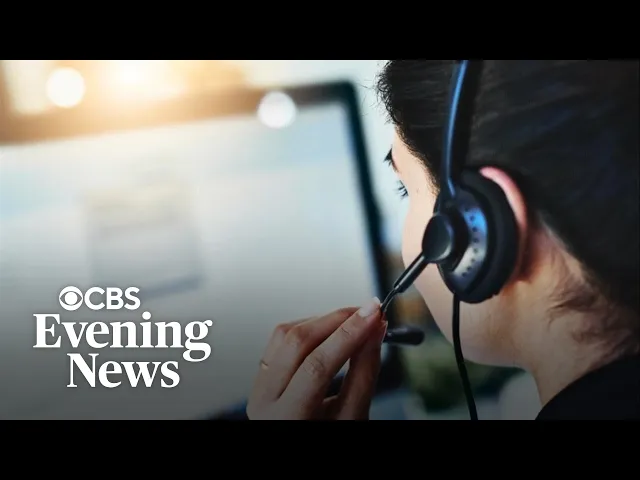Reporter’s Notebook: The debate over how AI will change work

AI is transforming work, but how drastically?
In a recent CBS segment, correspondent Brook Silva-Braga explores the evolving narrative around artificial intelligence and its impact on employment. What began as apocalyptic warnings about widespread job displacement has gradually shifted toward a more nuanced perspective on how AI might augment rather than replace human workers. This thoughtful examination raises important questions about the true trajectory of workplace transformation in the age of increasingly capable AI systems.
-
The AI narrative has evolved from doomsday predictions of massive job losses to a more measured outlook focused on augmentation and collaboration between humans and machines.
-
Workers express mixed feelings about AI integration, with many acknowledging productivity benefits while harboring concerns about job security and the changing nature of their roles.
-
Expert consensus remains elusive, with economists like Daron Acemoglu predicting significant displacement (up to 20-30% of work hours automated) while others argue that the technology will create new opportunities and enhance human potential.
-
Actual implementation varies widely across industries, with some companies aggressively pursuing automation while others take a more cautious, human-centered approach to AI adoption.
-
Historical parallels suggest caution when making sweeping predictions, as previous technological revolutions have often produced unexpected outcomes rather than the dramatic disruptions initially forecast.
The most compelling insight from this exploration is the growing recognition that AI's impact will be neither uniform nor predetermined. Rather than a single future where machines simply replace humans, we're witnessing the emergence of multiple possible trajectories shaped by conscious choices about how we design and deploy these technologies. This matters tremendously because it shifts the conversation from technological determinism ("AI will inevitably take our jobs") to one of agency and intentionality ("How should we integrate AI to benefit workers and society?").
This distinction isn't merely academic. Companies making implementation decisions today are effectively choosing which version of the future they want to help create. Organizations like Microsoft have publicly committed to human-AI collaboration models, where the technology handles routine tasks while elevating human creativity and judgment. Meanwhile, some logistics and manufacturing operations continue to pursue more aggressive automation strategies that could indeed reduce headcount significantly.
What the CBS segment doesn't fully explore is the emerging "centaur model" of work—where human-AI teams consistently outperform either humans or AI working independently.
Recent Videos
How To Earn MONEY With Images (No Bullsh*t)
Smart earnings from your image collection In today's digital economy, passive income streams have become increasingly accessible to creators with various skill sets. A recent YouTube video cuts through the hype to explore legitimate ways photographers, designers, and even casual smartphone users can monetize their image collections. The strategies outlined don't rely on unrealistic promises or complicated schemes—instead, they focus on established marketplaces with proven revenue potential for image creators. Key Points Stock photography platforms like Shutterstock, Adobe Stock, and Getty Images remain viable income sources when you understand their specific requirements and optimize your submissions accordingly. Specialized marketplaces focusing...
Oct 3, 2025New SHAPE SHIFTING AI Robot Is Freaking People Out
Liquid robots will change everything In the quiet labs of Carnegie Mellon University, scientists have created something that feels plucked from science fiction—a magnetic slime robot that can transform between liquid and solid states, slipping through tight spaces before reassembling on the other side. This technology, showcased in a recent YouTube video, represents a significant leap beyond traditional robotics into a realm where machines mimic not just animal movements, but their fundamental physical properties. While the internet might be buzzing with dystopian concerns about "shape-shifting terminators," the reality offers far more promising applications that could revolutionize medicine, rescue operations, and...
Oct 3, 2025How To Do Homeless AI Tiktok Trend (Tiktok Homeless AI Tutorial)
AI homeless trend raises ethical concerns In an era where social media trends evolve faster than we can comprehend them, TikTok's "homeless AI" trend has sparked both creative engagement and serious ethical questions. The trend, which involves using AI to transform ordinary photos into images depicting homelessness, has rapidly gained traction across the platform, with creators eagerly jumping on board to showcase their digital transformations. While the technical process is relatively straightforward, the implications of digitally "becoming homeless" for entertainment deserve careful consideration. The video tutorial provides a step-by-step guide on creating these AI-generated images, explaining how users can transform...
